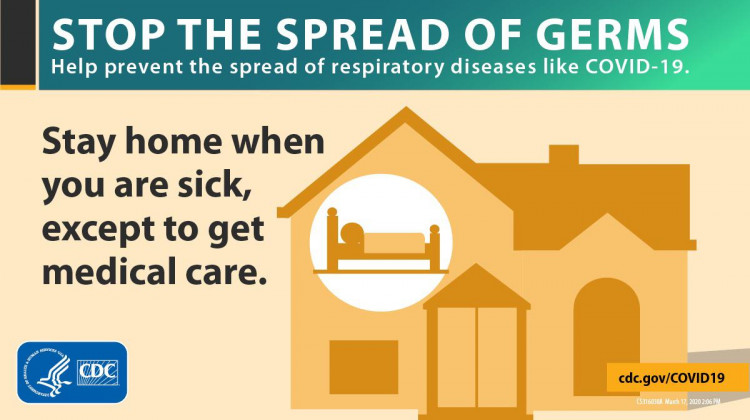In order to give your viewers a meaningful context in your reporting, please compare the current number of deaths from the COVID-19 virus with the average number of deaths due to the flu in the U.S. over the last decade.
The new coronavirus is still sweeping through the U.S., so it's difficult to draw comparisons to past flu seasons. Looking at the flu and coronavirus in other countries may be helpful.
For example, in February 2018, Spain reported that the flu season was the worst of the past decade -- including the H1N1 scare in 2009. At the time, there were 472 seasonal flu deaths.
Compare that to the coronavirus, which has caused some 11,000 deaths in Spain, according to Johns Hopkins' Coronavirus Resource Center. That's why public health experts are so worried about the power of COVID-19.
If the worst U.S. flu season in recent years brought 56,000 deaths (2012-13), it's easy to see why forecasts for COVID-19 are much, much higher.
The U.S. Midwest and Southwest have not had as many COVID-19 cases as coastal cities like Seattle and New York. But even in those regions, the number of cases is rising rapidly -- sometimes doubling in just a few days.
I have a question about some potential symptoms that I might have: Sore throat for several days, heartburn, fatigue, and vomited several times. Am unable to determine if I have a fever or not as I can't seem to get one. I am 57 and live with a person who has COPD, and so am very concerned. Do I need to get tested?
The most common symptoms of COVID-19 are fever, a cough and shortness of breath, according to the Centers for Disease Control and Prevention. But you should call a doctor to get recommendations for treatment of your illness -- and ask about the possibility of a test. Be sure to mention your living situation, because COVID-19 is more dangerous for people with underlying health conditions like COPD.
Here are some recommendations for people with COPD.
I don’t have a spleen. Does that make me a high risk?
Yes. Not having a spleen doesn’t make you more likely to contract the coronavirus, but if you do happen to contract it, you're at higher risk for significant complications. Your spleen plays an important role in your body’s immune system. Without it, your body is essentially down a fighter in its battle against infections, and coronavirus can lead to serious infections like pneumonia.
The Children’s Hospital of Pittsburgh explains it like this: "Because the spleen is so important to your immune system, people without spleens are more vulnerable to infections. This is why your doctor may tell you to take extra precautions, such as getting vaccinations, once your spleen has been removed."
The CDC says that if you have been exposed to the disease and have a compromised immune system, talk to your doctor as soon as possible.
My state has issued a “stay-at-home” and asked non-essential businesses to temporarily close. I think I work for a non-essential business, but my employer is still asking me to come to work. What do I do?
This question, unfortunately, doesn’t have an easy answer, because the definition of an “essential” business is somewhat flexible. Some are obvious, like health facilities, supermarkets and pharmacies. Gas stations, laundries and home repair providers are included, too.
And as Indiana Public Broadcasting digital editor Lauren Chapman explains, the supply chains that allow those facilities to maintain their operations are considered essential, too. For example, if your company makes parts for ventilators, but is several steps removed from the final product, it's still considered an essential business. And that spreads even further in food production.
However, if you feel that your place of employment is a non-essential business and is violating stay-at-home orders, there are ways to report that violation. For example, Indiana’s Occupational Safety and Health Administration has a form for filing complaints related to COVID-19.
Justin Hicks, IPB’s workforce development reporter, says it isn’t clear what the penalties for violating the stay-at-home order might be for non-essential businesses.
Chapman and Hicks tackled this question and several other employment-related concerns in a Facebook Live edition of “You Asked, We Answered.”
Throughout the year, Side Effects will work closely with Indiana Public Broadcasting and WFYI to ask Americans about health issues, as part of the America Amplified: Election 2020 initiative. To join our texting group, text elections to 73224; we'll send questions each month and use your answers to inform our reporting. To contact us directly with a question, email health@wfyi.org
America Amplified: Election 2020 is a public media initiative funded by the Corporation for Public Broadcasting. America Amplified is using community engagement to inform and strengthen local, regional and national journalism. Follow the initiative on Twitter at @amplified2020.
 DONATE
DONATE







 Support WFYI. We can't do it without you.
Support WFYI. We can't do it without you.